Driving 120 startups: Venture Centre at NCL in Pune, India’s largest science business incubator
[This article is part of a YourStory series called Startup Hatch, about incubators and accelerators in the startup ecosystem. See earlier profiles of incubators at IIT Bombay, BITS Pilani, NID, IIIT-Bangalore, Vellore Institute of Technology, and PSG Coimbatore. ]
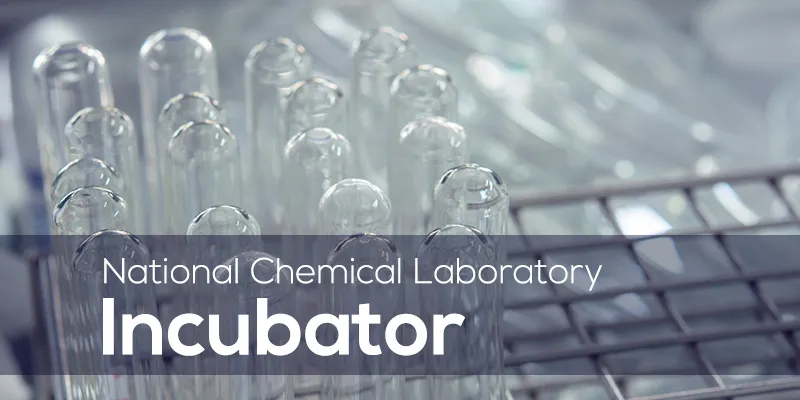
The Venture Centre hosted by the CSIR-National Chemical Laboratory, Pune, is the largest science business incubator in India. The Venture Centre is the trademark of Entrepreneurship Development Centre (EDC), and has supported a total of 41 startups and five large companies as resident incubatees, 18 startups as associate-incubatees, and 65 startups as pre-incubatee. Dr. V. Premnath and Soma Chattopadhyay share with us the vision and achievements of Venture Centre.
Dr V. Premnath is Director, Venture Centre and non-executive head of the organisation. He holds a B.Tech. from IIT Bombay and a Ph.D. from MIT, USA. He has also been a Chevening Technology Enterprise Fellow with the Centre for Scientific Enterprises, London Business School and Cambridge University, UK.
Soma Chattopadhyay is Manager Incubator and Marketing at Venture Centre. She is the first point of contact for the innovators. She obtained her M.Sc in Physical Chemistry from Calcutta University followed by over nine years as Team Leader in the R&D division of Cookson Electronics.
What was the founding vision of your incubator, and how is it supported?
The Venture Centre was founded with the mission of nucleating and nurturing knowledge-intensive or inventive enterprises by creating a rich and supportive innovation ecosystem in the Pune region. The vision is to create a vibrant and sustainable cluster of innovative technology businesses in India and demonstrate the feasibility of creating such a cluster in India.
Venture Centre is hosted by the CSIR-National Chemical Laboratory, Pune and has received support from various entities of the Ministry of Science and Technology, Government of India (especially DST-NSTEDB and DBT-BIRAC). Venture Centre also generates its own revenues, operates projects for agencies and attracts sponsorships/donations from well-wishers and beneficiaries.
Tell us about some of the graduated and resident companies at Venture Centre.
Venture Centre has supported a total of 41 startups and 5 large companies as resident incubatees, 18 startups as associate-incubatees and 65 startups as pre-incubatee. Out of 47 resident incubates, 19 have graduated and 27 are at Venture Centre. See details in Table 1 and Table 2 (at the end of the interview).
What would you say are the Top Three opportunities for Indian entrepreneurs?
Venture Centre is very excited about emerging technology business opportunities in the following areas:
- Affordable healthcare, assisted living and nutrition/food/agriculture
- Clean energy, environment and sustainable resource utilisation/optimisation
- Advanced materials for various applications.
This is besides the excitement in the area of IT, internet and communications enabled technologies. The Venture Centre is keenly tracking key enablers for technology innovations and entrepreneurship that are emerging, including:
- A variety of funding schemes supporting early stage innovation being announced by the Government of India, multi-lateral agencies, international charities and corporate under CSR funding
- Local ecosystems and facilities emerging in the form of incubators, accelerators and innovation centres
- Increasing opportunities for increasing interaction between businesses, NGOs and governments.
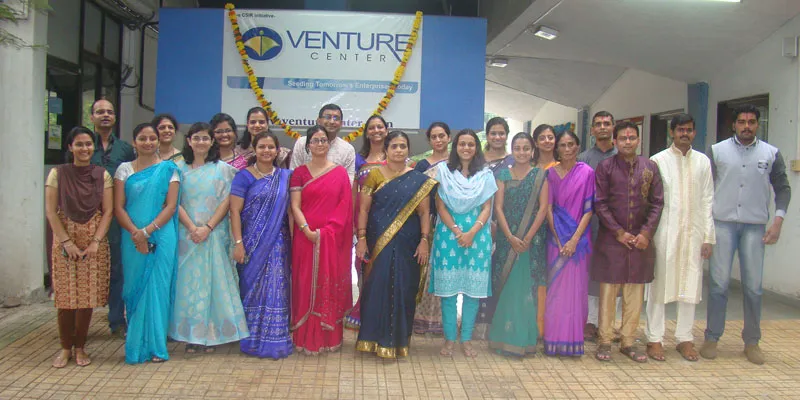
What are the key challenges faced by startups in India, and how can you help bridge the gap?
Venture Centre engages with inventive enterprises - a category of enterprises that face unique challenges due to fact that these startups require a much richer ecosystem to thrive while also having longer incubation periods.
Key challenges faced by inventive enterprise in India are:
- patchy early stage (POC-stage) funding (only available in certain sectors)
- disconnect between entrepreneurs and research organisations (where bulk of research spending happens in India)
- lack of entrepreneurs and mentors with experience in commercialisation of inventions.
Venture Centre is actively working to bridge these gaps by:
- identifying, creating, facilitating and operating early stage funding opportunities. Venture Centre facilitates access to government funding schemes. Venture Centre operates two seed funds. Venture Centre is working to create other pockets of funding via CSR funding route.
- Venture Centre operates a unique and pioneering program called the Lab2Mkt program for creation of spin-off companies from research organisations. Venture Centre helps facilitate interaction between companies and research organisations via its mentoring efforts and other formal programs.
- India does not have a larg number of entrepreneurs and mentors with experience in commercialisation of inventions. In this context, Venture Centre conducts a wide range of events to building learning and experience amongst first-time entrepreneurs and helps connect entrepreneurs to mentors from other parts of the world.

What is the selection criteria for startups in your incubator?
The most important selection criteria are:
- fit into the Venture Centre’s incubation program and thrust areas that leverage chemical, materials and biological sciences and engineering, and ability to leverage the scientific capabilities of research organisations in Pune
- knowledge intensity and potential for novel products, services and technologies; ability of the company to build a sustainable competitive edge via technology.
- passion, vision and integrity of the founding/leadership team along with their technical and business expertise to manage the startup venture
- potential and ability to ‘sell the dream’ and raise funding.
What support and services do startups receive in your incubator?
Venture Centre supports its startups by offering:
- general infrastructural services (dedicated office suits, hot desking facility, meeting spaces, Venture Centre reception , mailbox facility, website development)
- scientific support services (dedicated laboratory spaces, shared lab space, analytical equipments, Cell Studio, Tinkering lab)
- specialised scientific facilities (Centre for Applications of Mass Spectrometry (CAMS), Mechanical Testing Services, Confocal Microscopy Services, Flow Cytometry Services, Cell proliferation and viability studies)
- advisory and mentoring services (technology assessment, due-diligence, valuation, intellectual property planning, business planning and market feasibility assessments, scientific support in select areas, business support services)
- information services (library, database access)
- IP and technology commercialisation support (see http://www.ipface.org)
- funding options and advice (NSTDB Seed Fund, TDB Seed Fund, Proof of Concept Fund, Ministry of MSME Support Grant, In-house database funding options)
- learning and training opportunities (campaigns, technical and business workshops, sounding board with mentors)
- networking opportunities and referrals (events, workshops, seminars)
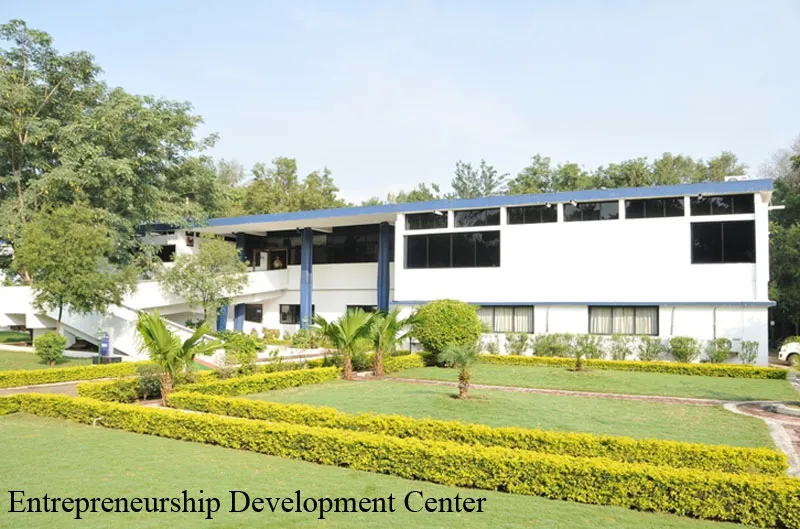
Extended resources:
- expertise, capabilities and facilities of the National Chemical Laboratory
- national business incubation networks
- international linkages and networks
- referrals, nominations and support to enter business plan competitions and technology/business showcases
- Inventors Network
- corporate technology sourcing and venturing bodies
- local external networks.
We have online resources which provide more information about our portfolio of services and activity map.
What kinds of IP are being created by your startups?
Venture Centre is a business incubator with a focus on inventive enterprises. Know-how is being mainly protected in the form of patents and trade secrets. Domains where patents have been filed or are being, filed or domains where our startups are advancing licensed know-how/patents are:
- biopharma: novel strategies for protein synthesis; novel strategies for target identification.
- biomedical materials: novel scaffolds; novel intra ocular lenses
- biomedical electronics and devices: handheld devices and remote communication for healthcare diagnostics; hand cranked defibrillators; novel designs for biomed products.
- diagnostics: modified PCR processes; strip based diagnostics; exosome based diagnostics.
- bio-IT interface: algorithms powering location specific apps.
Besides this, startups are also using copyright and trademark protection.
How would you differentiate your incubator from the other incubators in the field?
Venture Centre is different and unique in the following ways:
- With roughly 25 resident incubates, Venture Centre is the largest science business incubator in India.
- We focus on inventive enterprises/ knowledge-intensive startups.
- We are the first and only business incubator in the Council of Scientific and Industrial Research (CSIR) system. CSIR is the largest publicly funded R&D organisation in the country.
- Venture Centre’s Lab2Mkt program is unique in India in actively helping spin-off ventures from publicly funded research laboratories.
- Venture Centre is one of the few incubators in the country which can support startups with wet lab needs and operates in chemicals/materials/ biological science domains.
- We have one of richest and diverse innovation ecosystems for science entrepreneurship in India which includes infrastructure support, dedicated scientific facilities, advisory and mentoring support, IP/TT services, funding options and advisory support, networking and training opportunities.
- Venture Centre is a hub for entrepreneurship and innovation in the Pune region with more than 130 events per year, an outreach centre for several government programs and hosting several networks.
- We have affiliation to the CSIR-NCL and IISER-Pune and access to the intellectual environment and resources of these organisations. CSIR-NCL is the largest patent filing non-profit in the country.
What would you define as success for your incubator?
Venture Centre tracks both activity and impact metrics to track its success – some are short term and others are longer term. Some of these are:
- number of companies incubated
- numbers of companies successfully reaching key fund raising milestones
- number of companies/entrepreneurs with knowledge-intensive product/service offerings
- visibility and recognitions received by our startups
- number of people benefiting from Venture Centre’s ecosystem via incubation, services, events
- diversity and quality of service offerings at Venture Centre
- number of innovative product/ service offerings from startups
- investments and funding raised by startups
- number of jobs created
- turnover of startups incubated.
Eventually, Venture Centre would like to be credited with creating a vibrant cluster of innovative startups (with a national and global footprint) in the Pune region.
How do you compare and contrast India’s incubators with those of other countries like US and China?
India’s incubators are relatively small in scale. Most of the incubators in India are focused on IT, communications and Internet technologies - other domains are poorly supported. Most Indian incubators do not have experience mentoring companies with the technology de-risking and commercialisation process in high-science domains. Most Indian incubators do not have the ability to support inventive enterprises. There is shortage of experienced incubation and innovation managers in the country. There is also a shortage of entrepreneurs with experience dealing with inventions and high-technology. Support to incubation as a vehicle for regional economic development is poor in India - most incubators are centrally funded.
US and China have a much larger number of incubators. There is much more diversity and specialisation amongst incubators in the US.
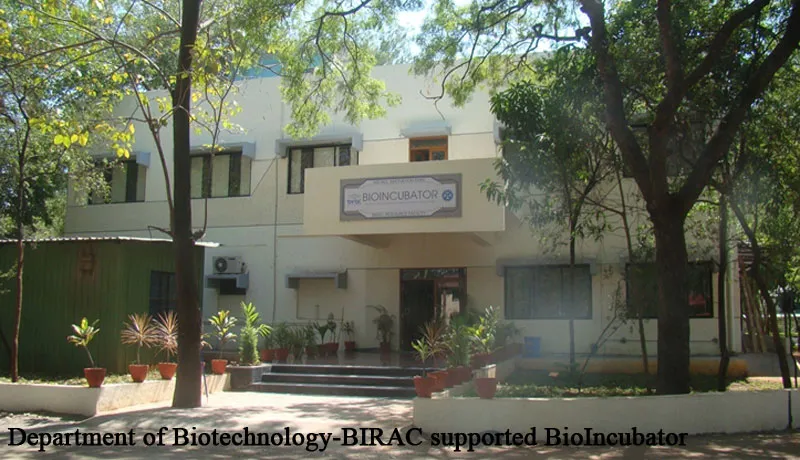
What are your plans for the coming three to five years with respect to new incubatees?
Venture Centre is currently planning expansion so as to be able to support 45-55 resident incubatees at any given time. Venture Centre is also considering expanding its reach in other parts of the country via a hub-and-spoke model.
While bio-incubation (biotech and biomed) will continue to remain a focus, Venture Centre is actively working to increase its focus on startups in the area of Clean Tech (energy, environment and resource utilisation), Social Entrepreneurship (socially important technologies) and a few other niche domains. The Venture Centre plans to also scale up its Lab2Mkt program via which it helps create spin-off companies from publicly funded research labs.
What are your recommendations for Indian policymakers to make business easier for entrepreneurship in India?
Our recommendations are:
- Incubators focusing on inventive enterprises need much greater nurturing and government support over a longer period since they have the potential of nucleating the future industries for the nation - especially in a future where India would rank amongst the innovation economies of the world.
- Government needs to provide clear directions to research labs, making spin-off creation a priority. With more than 80% of research spending in India happening in research institutions, innovative venture creation cannot happen with the desired intensity without these labs participating.
- What India needs today to spur inventive enterprises are several pockets of easy to access grant funding opportunities for individuals and for-profit companies. Currently, only two to three funding schemes are available and have their own limitations. The most promising is BIRAC’s BIG but the number of awards is too small and the program is sector specific. Certain sectors like engineering innovations do not have any funding support.
What are your recommendations to the startups and entrepreneurs in our audience?
Venture Centre advice to entrepreneurs is:
- You are not alone. Increasingly, we are finding many young people pursuing entrepreneurship, and passionately working towards changing the world and making a difference in their own way. The journey is often not the simplest one but it is definitely something worth trying and the goals worth aspiring to.
- The single most important determinant of success is your ability to surround yourself with capable team members, advisors and mentors.
- Build sustainable competitive edge in your technology strategy - one common way is via patents. It is important to stand out in the crowd especially if you are addressing a global market.
What is the profile of the incubator management team?
Dr Manisha Premnath is the General Manager at Venture Centre. She provides leadership for and manages a team that works closely with entrepreneurs and technologists to promote and support scientific/ inventive startups. She is a biotechnologist by training with a PhD from University of Pune/ CSIR-National Chemical Laboratory, Pune, India. She was a British Council Higher Education Visiting Scholar at the University of Aberdeen, UK. She has carried out postdoctoral research at the University of Cambridge, UK. Dr Manisha Premnath is currently a Chevening Rolls Royce Science, Innovation, Policy and Leadership Programme (CRISP) Fellow 2015 at the Said Business School, University of Oxford, UK.
Shruti Devasthali is associated with Venture Centre as Manager – Equity and Grant Portfolio. She is a Chartered Accountant and a certified Financial Risk Manager. She is currently operating seed fund activities for Venture Centre and monitoring the investments in Venture Centre’s portfolio companies. She is also responsible for mentoring Lab2mkt companies on corporate governance; and management of financial and legal matters relating to grant programs. She earlier worked with CRISIL and Dun and Bradstreet Information Services India in the areas of credit and financial analysis.
Pradnya Aradhye is Bioincubation Manager, Bioincubator, Venture Centre. She has done her M.Tech in Biological Sciences and Bioengineering from IIT Kanpur. She is responsible for creating a pipeline of potential and signing-up incubatees for the Bioincubator. She has also contributes in building scientific support systems and resources for VC incubates including specific expertise. Pradnya carries out discussions with scientists to understand their competencies and research work.
Piyush Joshi is the POC Project Manager at Venture Centre. His experience is in commercialising technology via spin-off routes. He has more than five years of experience in mentoring and monitoring pre-incorporation stage projects (probable future startups) from material science and medical device domain on business planning, startup incorporation and fund raising. Piyush holds a bachelor’s degree in Polymer engineering from MIT, Pune. He has completed a post graduate diploma in patents law from NALSAR University of Law, Hyderabad.
Dr. Mugdha Potnis-Lele is Scientific Advisor and Program Manager – Social Innovation Immersion Program at Venture Centre. She has M.Sc and Ph.D degrees from School of Health Sciences, University of Pune and has seven years teaching experience as Assistant Professor in Maharashtra University of Health Sciences. Her research work is related to epidemiological profiling and development of molecular diagnostics for genetic disorders. She has a few national and international publications to her credit. Mugdha is involved in constitution of various advisory committees for laboratory related activities of Venture Centre, which has a team strength of 24 staff and consultants.
Table 1: Incubated companies from Venture Centre
* Soft Landing: Multi-national companies/larger organisations incubated at Venture Centre under Soft Landing program
Table 2: Current incubatees at Venture Centre
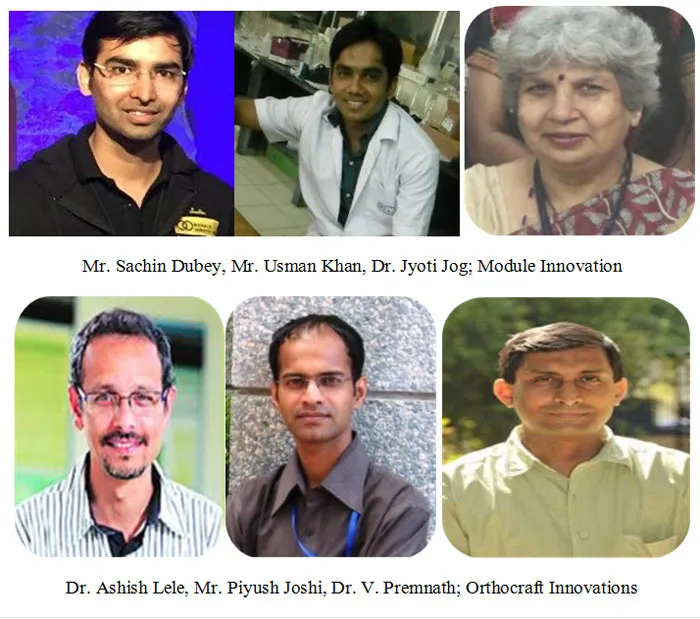
td width="398"







